A new scientific truth does not triumph by convincing its adversaries but rather by the fact that these adversaries finally die, and a new generation grows up familiar with the new truth.
Max Planck
In 2003, the U.N. Secretariat surveyed member states to solicit information on the nature of links between terrorism and other forms of crime. Of the 60 responses received, many states indicated that terrorist groups were often involved in trafficking in illicit drugs and firearms, migrant smuggling, and involvement in other illegal markets. Also, a number of countries indicated links between terrorists and criminal activities related to corruption; money laundering; and the falsification of travel, identity, and other official documents. Some countries indicated links between terrorism and trafficking in potentially deadly materials. Such criminal activities provide financial support for terrorist activities. The methods used in these criminal activities are similar to those used by organized crime groups involved in these same activities, and in some cases terrorists cooperate with these groups. The work of the United Nations Office on Drugs and Crime (“UNODC”) with member states in strengthening the rule of law, promoting stable and viable criminal justice systems, and enhancing regional and international cooperation in countering transnational crime and criminal groups should assist in undermining the criminal fund-raising activities of terrorist groups, thus weakening their ability to launch terrorist attacks.
In a show of support of the work of the UNODC in fighting organised crime and terrorism Ms Philippa King Ambassador and Deputy Permanent Representative of Australia to the United Nations delivered the following speech to the United Nations Security Council on 25 April, 2012:
Economic prosperity and border security begins with regional partnerships. In Australia’s own region, the Asia-Pacific, it is regional initiatives and institutions that have forged regional consensus on the application of global standards and norms on the issue.
Australia has played a leading role in establishing some of these institutions: such as the Asia-Pacific Group on Money Laundering, and the Bali Process on People Smuggling, Trafficking in Persons and other Transnational Crime, which we co-chair with Indonesia.
But what has characterised the Asia-Pacific response is the dynamism of its established regional organisations, which have progressively adapted their mandates to tackle the threat to regional – and economic – security posed by illicit trafficking. The ASEAN Regional Forum, for example, has established work plans for both transnational crime and terrorism, as well as non-proliferation and disarmament.
In the Asia-Pacific region, an effective UNODC will continue to play a vital role in addressing transnational threats. Australia together with NZ is funding the first regional Transnational Organised Crime Assessment for East Asia and the Pacific, to complement and build on the global Assessment by UNODC in 2010. We look forward to sharing this in July and hope it will support the efforts of other regions.
Australia wants to contribute to regional solutions in other parts of the world too. Australia has had the privilege of working with our partners in the African Union on a series of AU transnational crime guides: on people smuggling, anti-money laundering, proceeds of crime, CT and CT financing. To respond to the particularly acute challenges in the Sahel and Maghreb, we are working with the CT Committee Executive Directorate (CTED) to enhance border control capabilities. This week Australia is also conducting a workshop with the East African Community, seeking to enhance efforts on anti-money laundering and terrorist financing.
Nobel words from Ms King, noble words indeed. Let’s consider the reality of Ms King’s noble words in light of Australia’s commitment to the ‘rule of law’ and fighting the falsification of travel, identity, and other official documents in the Asia/Pacific region.
I have been spending some time reviewing the court files relating to Captain Fred Martens now discredited conviction on child sex tourism charges. Within the voluminous documentation making up Captain Martens court file, I came across a gem, a gem which tends to support Captain Martens allegation that the Australian Federal Police (“AFP”) falsified certain travel and other documents relating to Ms Daphney Musa one of his original accusers.
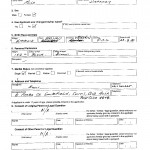
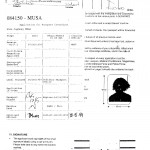
On 14 May 1999 Ms Musa was issued with a Papua New Guinea (“PNG”) passport bearing the serial number 084150. This passport had an expiry date of 14 May, 2004. This document shows Ms Musa’s birth date as being 23 September, 1981. The documents relating to Ms Musa’s May, 1999 passport application were faxed from the AFP Port Moresby offices via fax number 325 2116 on August 25, 2004. This was the day after Captain Martens was arrested and charged with child sex tourism offences relating to Ms Musa by AFP officer Tania Stokes in Port Moresby.
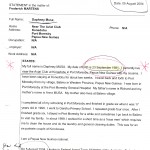
Following Captain Martens arrest, Ms Musa confirmed her year of birth as being 1981 in a number of Statements she gave to the AFP. On 5 August 2004, Ms Musa gave a statement to AFP officer 10695 Tania Stokes in which she stated:
My full name is Daphney MUSA. My date of birth is 23 September 1981.
On 15 October 2004, Ms Musa swore another statement before AFP officer Tania Stokes in which she stated that: On 23 September 1995, I turned fourteen years old, making her birth date 23 September, 1981. Many things turn on the year of Ms Musa’s birth, as the age of consent in PNG is 16.
The original charge against Captain Martens relating to Ms Musa was:
That on a date in mid to late 1996, in Port Moresby, Papua New Guinea, Frederick Arthur MARTENS, did engage in sexual intercourse with a person who was under 16 years of age, namely Daphney Musa, contrary to section 50BA of the Crimes Act 1914.
Prima face there is a case against Captain Martens. However, let’s consider the evidence in a little more detail. Daphney Musa in her statement dated 5 August 2004 stated that the first time she had sex with Captain Martens was on his boat in 1996 when she was fifteen years of age. The vessel on which this offence is alleged to have occurred was the M.V Bukap. (AKA M.V freedom) at the time of the alleged offence the M.V. Bukap was neither in Port Moresby nor was it under Captain Martens control. It had in fact been stolen from Lae at Voco Point on 26 July 1994, and was not recovered until the 2 December 1997 by the PNG police, meaning that either Ms Musa’s recollection of the timing of the events she described was wrong or the events themselves did not occur.
On learning of the aforementioned factual inconsistency with Ms Musa’s statement, The Commonwealth Director of Public Prosecutions (“CDPP”), made an application to the Committal Court Cairns Queensland to amend the date of the first alleged offence to suit the arrival of Captain Martens previously stolen vessel at Port Moresby. This application to the Committal Court by the CDPP to amend the charge against Captain Martens was successful. The charge relating to the Musa allegations now read
That on a date between the beginning of December 1997 to a date at the end of December 1997, in Port Moresby, Papua New Guinea, Frederick Arthur MARTENS, did engage in sexual intercourse with a person who was under 16 years of age, namely Daphney Musa, contrary to section 50BA of the Crimes Act 1914.
The problem for the CDPP was that by amending the charge to a date between the beginning of December 1997 to a date at the end of December 1997, there could be no offence, as Ms Musa by then was over sixteen years of age. This meant that to justify their arrest of Captain Martens over the Musa allegation, Ms Musa’s date of birth had to be changed.
To accommodate this new scenario Ms Musa’s parents Galakiyato Musa and Richard Ibali Sulama officially registered her birth with the PNG Register General in Port Moresby on 20 October, 2004. By this time Ms Musa was either 21 or 23 years of age depending on which birth year we take as being correct. With the registration of her birth in 2004 Daphney Musa became Daphney Sulama with an official year of birth that could accommodate all of the circumstances surrounding the now established arrival the M.V. Bukap in Port Moresby.
On 4 October, 2011 Ms Musa now known as Daphney Sulama was issued with a new PNG passport with a document number of B315545 and showing her birth date as 23 September, 1983.
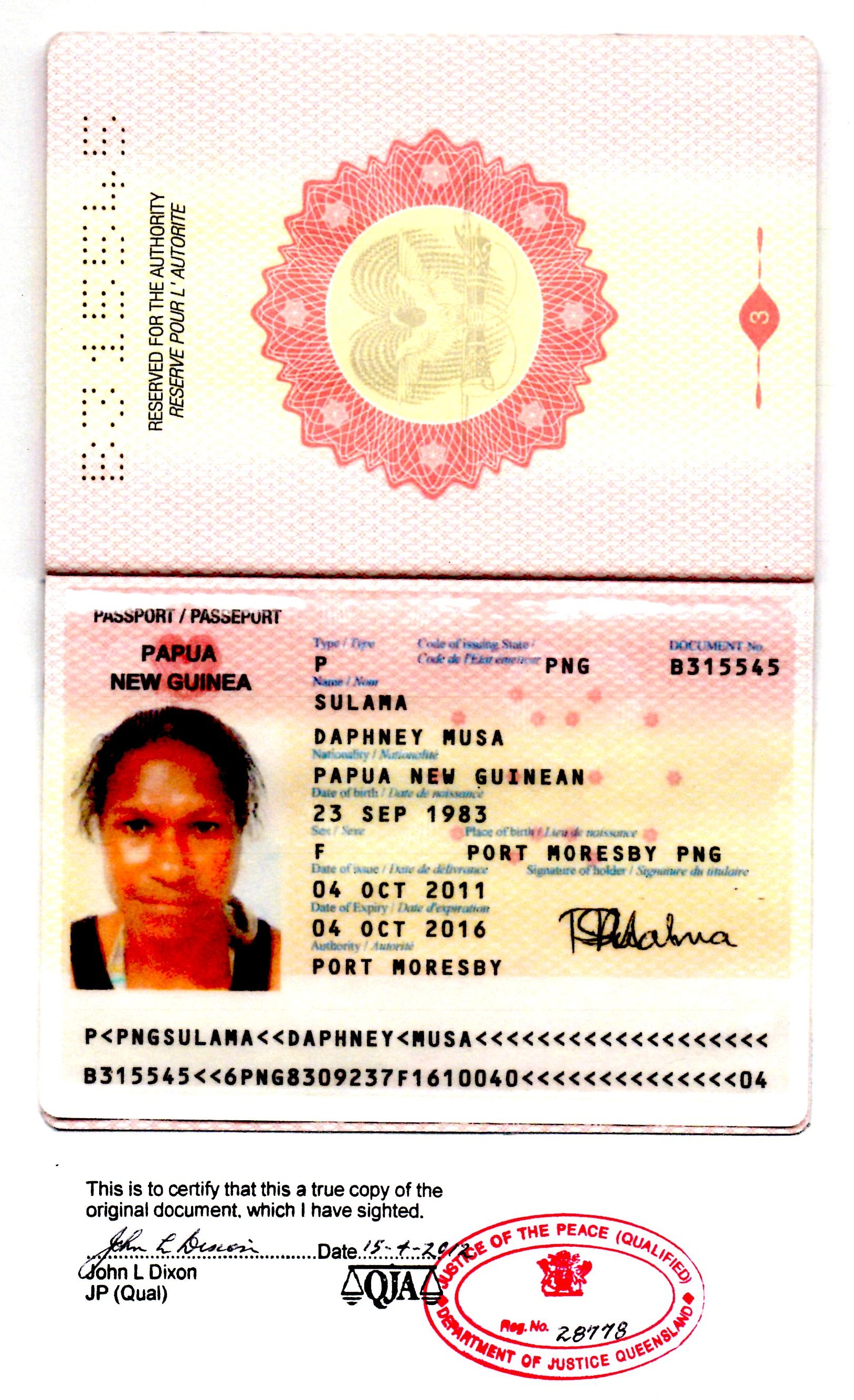 What does this mean in terms of boarder security and Australia’s so called commitment to the UNODC and the ‘rule of law’. If the AFP has been knowingly involved in the falsification of travel, identity, and other official documents of a foreign country, namely PNG, does this act not make the AFP organisationally guilty of fraud against the Government of PNG? Equally importantly, does this not mean that Australia has breached its own commitment to the UNODC? Alternatively, has a young, naive and relatively uneducated girl from PNG managed to hoodwink Australia’s entire security apparatus? Which scenario do you, the readers of Blak and Black, think is the more likely?
What does this mean in terms of boarder security and Australia’s so called commitment to the UNODC and the ‘rule of law’. If the AFP has been knowingly involved in the falsification of travel, identity, and other official documents of a foreign country, namely PNG, does this act not make the AFP organisationally guilty of fraud against the Government of PNG? Equally importantly, does this not mean that Australia has breached its own commitment to the UNODC? Alternatively, has a young, naive and relatively uneducated girl from PNG managed to hoodwink Australia’s entire security apparatus? Which scenario do you, the readers of Blak and Black, think is the more likely?
While on the issue of the AFP’s alleged criminal conduct in PNG, I received the following e-mail from Captain Martens this afternoon:
Dear Liam,
Garo from Peter Pena’s office in Port Moresby, has just advised me that a meeting with Peter and the Secretary for Foreign Affairs for the National Government of P.N.G. has confirmed on Friday 17th August last week at Waigani, Port Moresby, that none of the AFP, officers operating in PNG during 2004 and 2005 associated with my matter, were designated or approved and there operation was in fact illegal, this included the Team Leader AFP agent Leisa James and AFP agent Tania Stokes and others.
Peters office have now delivered a certificate for signing by the Secretary confirming the above.
Regards
Capt, Fred. (My emphasis)
The alleged falsification of travel, identity, and other official documents, illegal operations on foreign soil, one would almost think that the AFP was a criminal or terrorist organisation as defined by the UNODC! And to think, Australia has put its hand up for a seat on the United Nations Security Council – what a joke!

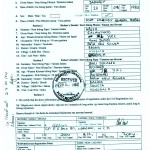
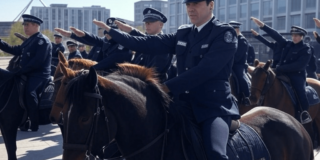
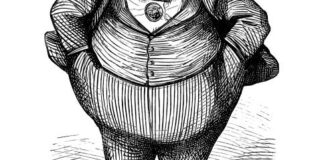
The evidence is there for all to see. Martens was fitted-up by the AFP and we the Aussie tax payer are left with the bill. How about some real accountability from the AFP, CDPP and AG’s Department.
Sure looks like a clear case of AFP corruption and fraud. The victim, well obviously Fred Martens the other victims – the people of Australia and the people of all countries that allow the AFP in. As an organisation the AFP has proven itself time and again to be nothing short of criminal in intent!
Another day, another lie by the AFP – Australia wake-up b 4 its 2 late.
Ah my brother you have caught your nemesis with his hand still on the crime, good word. Now you must expose his crime to the world via the UN. All’ah be praised for guiding you to revalation!
Seems like Capt. Fred was in deed fitted-up by your friends the AFP in what can only be described as an amaturish process.
Fred Martens 1,000 days in jail for what – to satisfy the egos of some corrupt AFP officers and Canberra based officials. Is this justice? I think we all know the answer to that!
The time line on the Musa material speaks for itself. The documents were changed to suit a false charge of child sex tourism against Fred Martens. This false charge cost Martens his daughters life. The AFP MUST be held ACCOUNTABLE for this!!!
Yes Melissa Ogrady Fred Martens did spend a 1,000 days in jail a victim of Australian/AFP ego and corruption. Without Martens as a victim PNG probably would not have agreed to a treaty allowing the AFP to have policing duties on its soil.
Pingback: Fred Martens and the AFP – the limits of the rule of law | Blak and Black
Seems that the AFP would not know the truth if they feel over it. Martens went to jail for 1,000 days during which time his daughter died. The only reason he went to jail was because the AFP fabricated the evidence.
Will what do we have here, have the ALP been caught telling lies and manipulating evidence? Sure looks like it to me!
Interesting array of documents Bakchos Glass I think Fred has a rock solid case against both the AFP and the CDPP.
Cuz sure looks like you’ve caught the pigs out in a lie on this one. Martens should be able to take the bastards for the entire Commonwealth budget. What absolute cunts the AFP and CDPP have proven themselves to be.
Yep Mick Madden think he has, AGAIN!!!!!!
No amount of lies make a truth, but we in Australia are guliable enough to sollow AFP BS hook, line and sinker.
Time for some accountaity from the AFP and CDPP.
See my comments under the post Fred Martens and the AFP. Something really does need to be done about this situation.
Lies, lies and more lies, the motto of the Australian Federal Police.
Are the AFP would find it a challenge to identify the truth if they fell over it.
Well, the title says it all!
Yeh sally it does!
Ain’t no truth ever going to come from the mouth of an AFP officer
What a pack of lying bastards the AFP are
But do the AFP really know what the truth is?
Pingback: Sir Gawain, moral accountability and the UN Security Council | Blak and Black
is the AFP the most corrupt law enforcement organisation in the Asia-pacific region? It would go close.